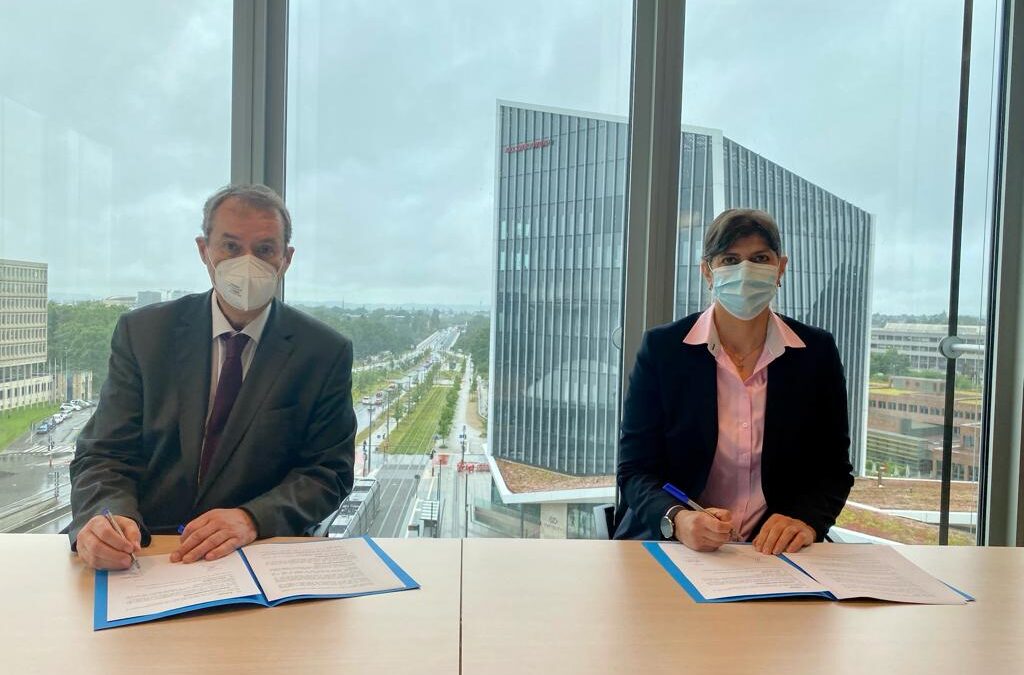Author: Petr Klement, Florin-Razvan Radu, Miriam Testa
Committee: Eu Institutions Committee
Date: 23/11/2023
On the 5th July 2021, in Luxemburg, the OLAF’s Chief, Ville Itälä, and the EPPO’s Chief, Laura Kövesi, signed an important working arrangement to cooperate and support each other in the exercise of their prosecutorial mandates.
However, on the 10th July 2023, the European Chief Prosecutor wrote a letter to the European commission saying that she invited the Commission to a “joint reflection on the implications for the management and financial control system of the European Union of the EPPO being operational”.
Moreover, she mentioned the article 103¹ of the EPPO’s regulation, saying that she is aware that EPPO shall provide a cooperative relationship with the Commission for protection of the financial interests of the Union and they will continue to pursue this purpose.
The fact is that the information must be verified by the responsible European Delegated Prosecutor. The conservative measures make sense if they’re launched before the beginning of the judicial case. Besides, the European Delegated Prosecutor decides what can be communicated and to whom during the investigation. But the EPPO’s investigations start before the Commission’s, so there’s no need to take conservative measures.
According to that, she suggests that there is a need to reach mutual understanding on the EPPO’s role and to optimize the information flow when a specific procedure milestones is achived and she proposes to discuss this topic during the yearly evaluation of the working agreement.
The PIF², in 2021, reported a total damage for the European budget amounted to EUR 1.82 billion for a total of EUR 157 million worth of fraud on the revenue side and EUR 1.66 billion on the expenditure side. These data were detected considering 27 of the Member States.
The next year, the EPPO reported a total damage of EUR 14.1 billion considering just 22 of the Member States.
| 2021-2022 reported damages | 2021 | 2022 |
| EPPO | 147.300.0003 | 14.100.000.000 |
| OLAF | 1.820.000.000 | 1.770.000.000 |
Between January and May 2023 the EPPO has opened approximately 20% more investigations than 2022.
This analysis and comparison shows clearly that there’s a gap between national prosecution services and the EU Commission: 90% of suspicions of fraud were not noted by national prosecution services. The same rate was, in fact, observed by the EPPO, which “has started to fill this information gap”. The European prosecutor’s results can’t be ignored.
Kövesi, in addition, affirmed that If there’s a way to combine the European Commission with the EPPO’s efficient, there could be more opportunities to improve their financial returns for the European budget and to reduce the damage.
In the end, the Chief gives some clarification on why the EPPO can’t accept the OLAF’s request about “complementary investigations” much more often. Furthermore, she clarifies why the Commission should be informed from the EPPO about the estimate of the amount to recover:
- The investigative strategy for EPPO is decided by The European Delegated Prosecutors and Permanent Chambers, which OLAF can’t provide.
- The fact that Eppo has to decide about its competence using its own estimated damages would constitute duplication of work and create unnecessary delays.
These are the main reasons why the operation of EPPO is way more efficient and it can provide results that can be used as evidence during the judicial proceedings.
¹ https://www.eumonitor.eu/9353000/1/j4nvhdfcs8bljza_j9vvik7m1c3gyxp/vjbglt2gpgzo
² https://eur-lex.europa.eu/legal-content/EN/TXT/?uri=CELEX%3A32017L1371
3 https://www.eppo.europa.eu/en/news/official-start-date-eppo-operations-1-june-2021
Chair: Petr Klement, Florin-Razvan Radu
Member of the Committee: Miriam Testa

